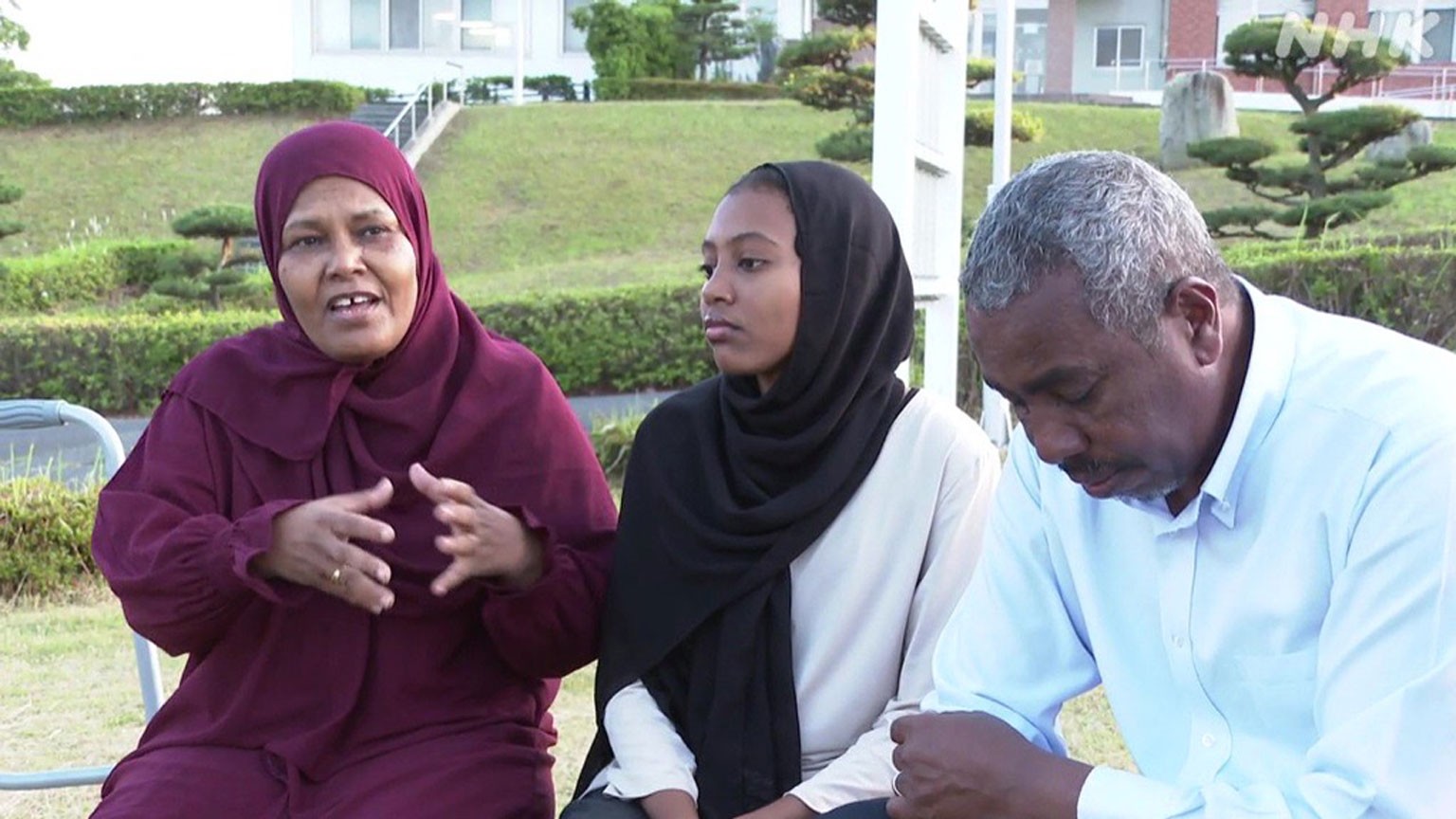Sudanese woman Omyma Elkhalifa, 54, speaks about how her family's peaceful life has been upended by armed clashes between the country's military and paramilitary groups.
She and the two adult children she shares with her husband Izzat Tahir, 57, endured a four-day journey to Japan to join him in Tottori Prefecture in May.
The family of four now lives together peacefully, but they pray every day for the safety of their family and friends who are in danger back home.
More than four months have passed since the violence erupted in Sudan.
"Nothing good can be done by fighting," says Izzat, a visiting professor at the Arid Land Research Center at Tottori University.
Daily heartbreak caused by the situation back home
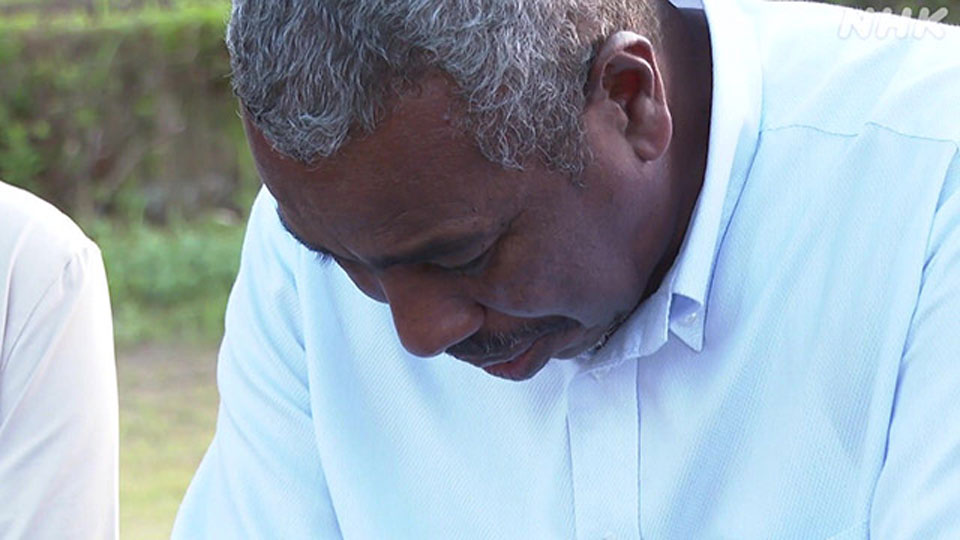
"This is a very difficult situation. Here, our family is safe, but the situation is unexpected."
Izzat says he and his wife, along with son Ahmed, 21, and daughter Aaya, 19, are heartbroken by the unfolding situation in Sudan that they follow on social media and in phone calls with relatives.
Taking wheat cultivation techniques back home
Izzat first attended Tottori University in 2001 as an international student. He wanted to develop a wheat crop that could withstand the Sudan's harsh environment and help alleviate food insecurity. In 2005, he earned his doctorate, eventually returning home to put his expertise to work.
Last year, Izzat returned to Japan to continue his research. But on April 15, he received shocking news from home about the armed clashes.
Fighting spreads
As fighting spread around the capital city of Khartoum, more than 4 million people were displaced, further aggravating the existing humanitarian crisis.
When the fighting began, Izzat was able to contact Omyma to confirm his family's safety. But communications became increasingly difficult.
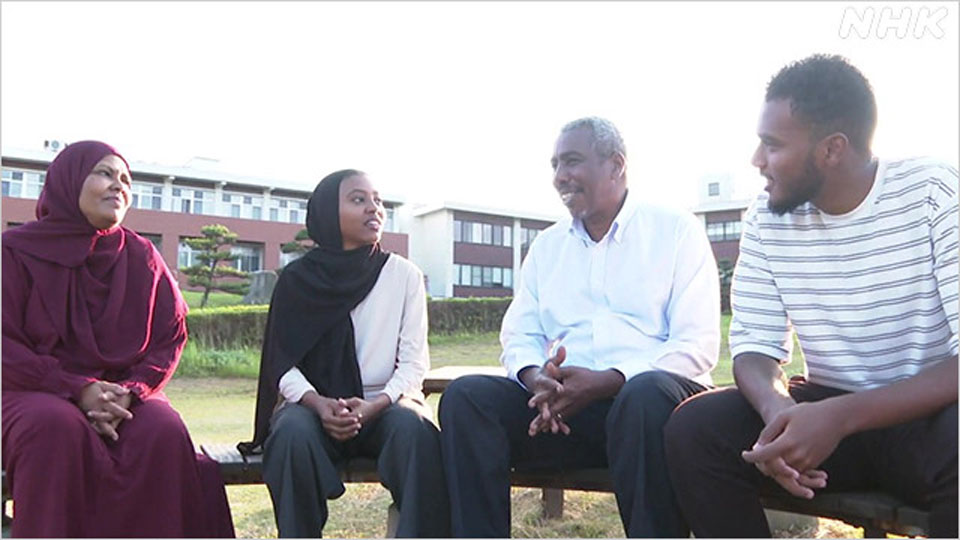
"Being away from your family and your relatives while they are suffering is hard," says Izzat.
Caught up in the violence
The Tahir family home is located in a city about 180 kilometers from Khartoum.
On the day the clashes began, Omyma and her children happened to be visiting relatives in the capital.
"In the morning, around 6 or 7 o'clock we heard the sound of a bomb," recalls Ahmed.
"We were very scared," says Omyma. "We hid under the beds."
After four days, the trio was able to leave Khartoum and return home.
Tense journey to the airport
When the clashes showed no signs of abating, they decided to evacuate to Japan to join Izzat. First, they had to make it out of danger.
A 16-hour bus ride from their hometown to the airport in Port Sudan was harrowing. En route, the bus was involved in a crash which shattered one of its windows.
"The journey was very hard and very scary," says Omyma. "The 16 hours felt like 60 hours."
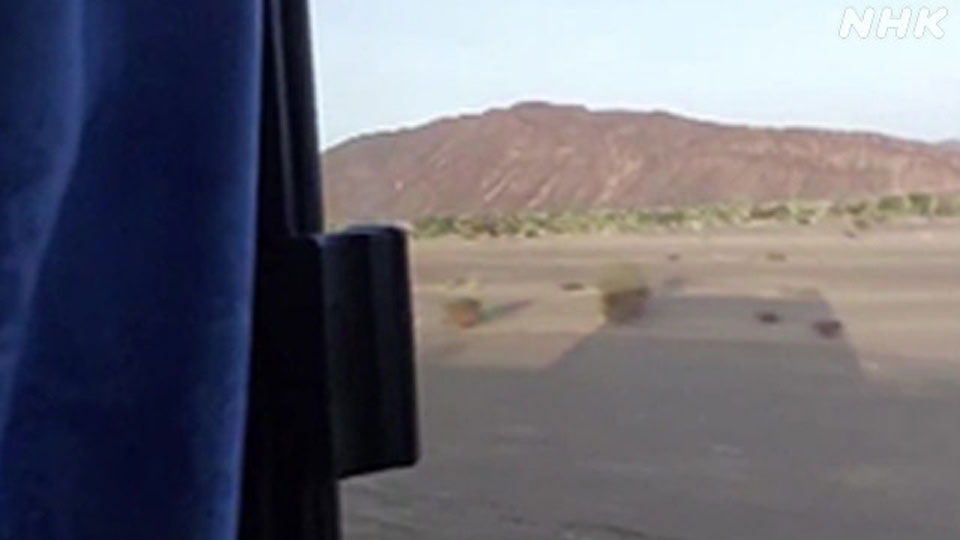
From the time they left home, it took about four days to reach Izzat in Japan. He was happy and relieved to see them, but there are ongoing concerns about friends and relatives left behind.
"We are very worried about our other family members in Sudan. We hope the situation improves," he says.
A shared experience
Izzat and his family are not the only ones at Tottori University anxious about developments back home. There are eight other Sudanese researchers and international students.
One of them is Amir Emam, who is enrolled in a doctoral program and lives in Tottori with his wife. His family is from the Darfur region where there has been heavy fighting.
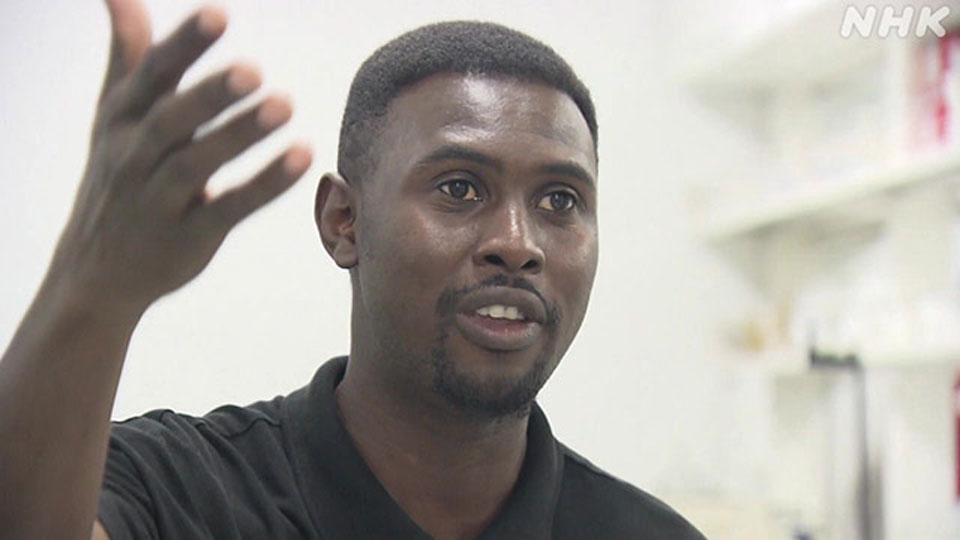
"I call home every day, praying for my family's safety," he says.
Sudanese community pulls together
The Sudanese community at the university is close-knit. Its members look out for one another as they navigate life in a foreign country.
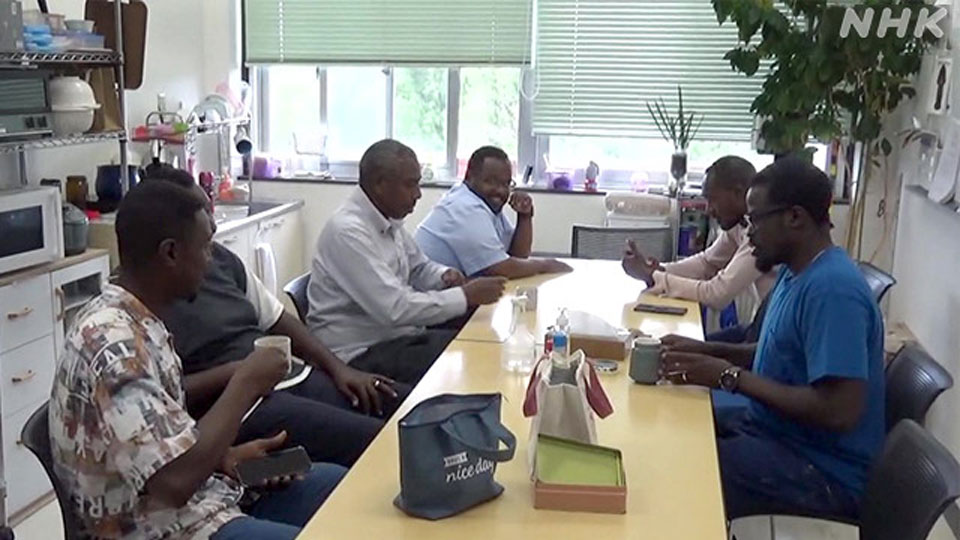
Izzat says, "When someone has some problems, of course we try to make it easier for them. We share feelings with each other."
Support from Japanese colleagues
Professor Tsujimoto Hisashi, a molecular biologist, conducts research with Izzat. He and his colleagues share information they receive about Sudan from the Japan International Cooperation Agency (JICA).
Tsujimoto helped arrange the airline tickets for Izzat's family. He also invited members of the Sudanese community to a local festival.
Tsujimoto wondered if the festival was appropriate in the circumstances. But it ended up being a valuable experience that brought some much-needed smiles.
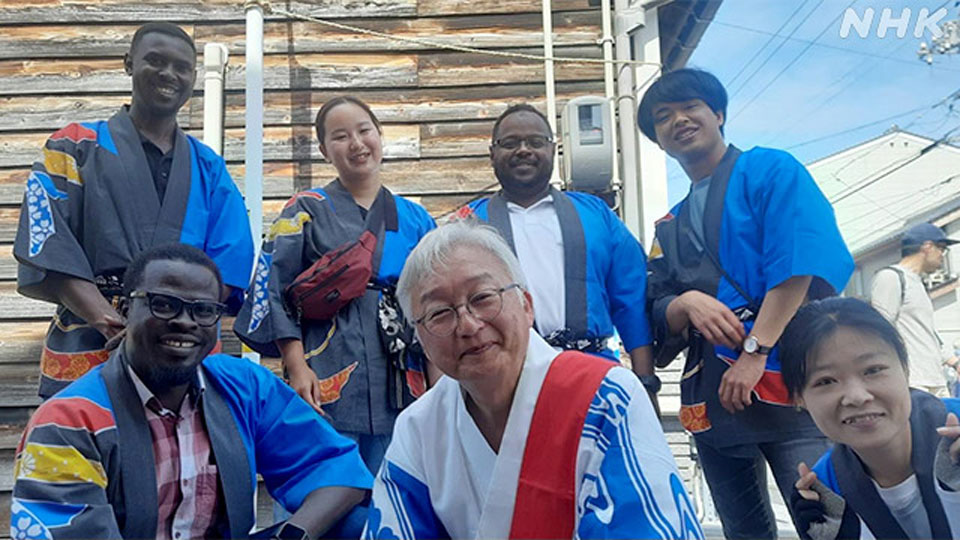
In the long term, he is hopeful that the Sudanese students and academics will use their knowledge to improve life back home.
"The food sector that we are studying here is a very important industry in Sudan. I hope that our students can be leaders in these fields and work for reconstruction after a ceasefire in Sudan."
Daily life in Tottori
Izzat's family shares an apartment together. Izzat is the only one who can drive a car in Japan, so that limits their ability to get out and about.
Both Ahmed and Aaya attended university in Sudan, but now, they mostly stay at home.
"It's hard to leave your country and your friends," says Aaya. "We don't have much to do other than just pray and ask Allah to make it better."
Izzat continues his research with a determination to help rebuild his country.
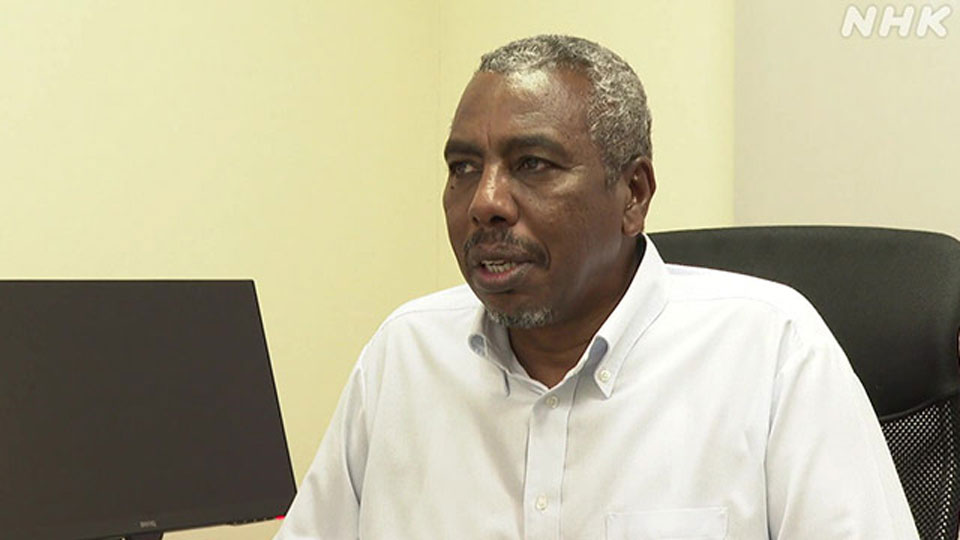
"I hope I will wake up tomorrow and the war stops. We want peace," he says. "Nothing good can be done by fighting each other."
